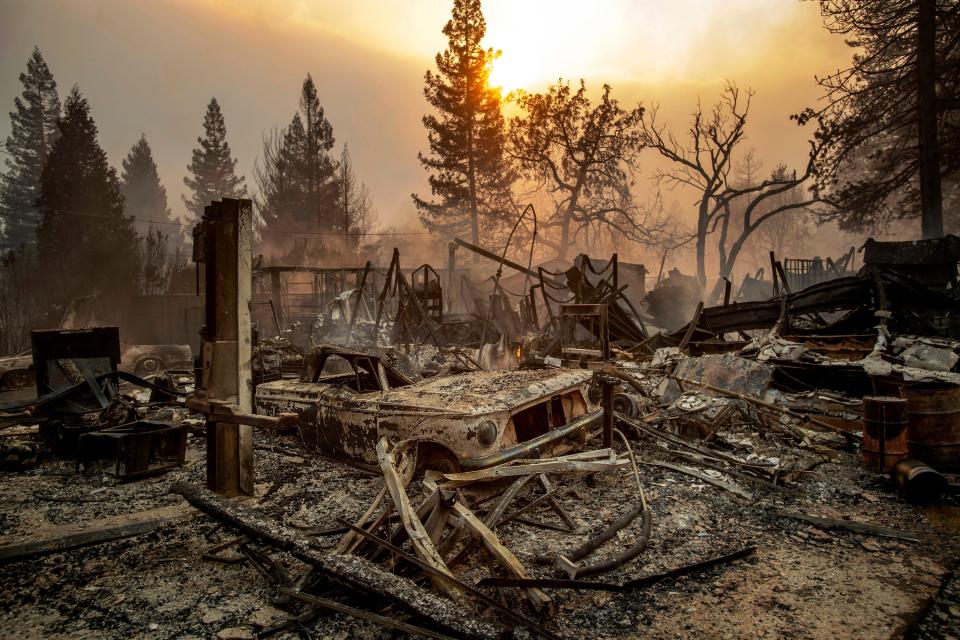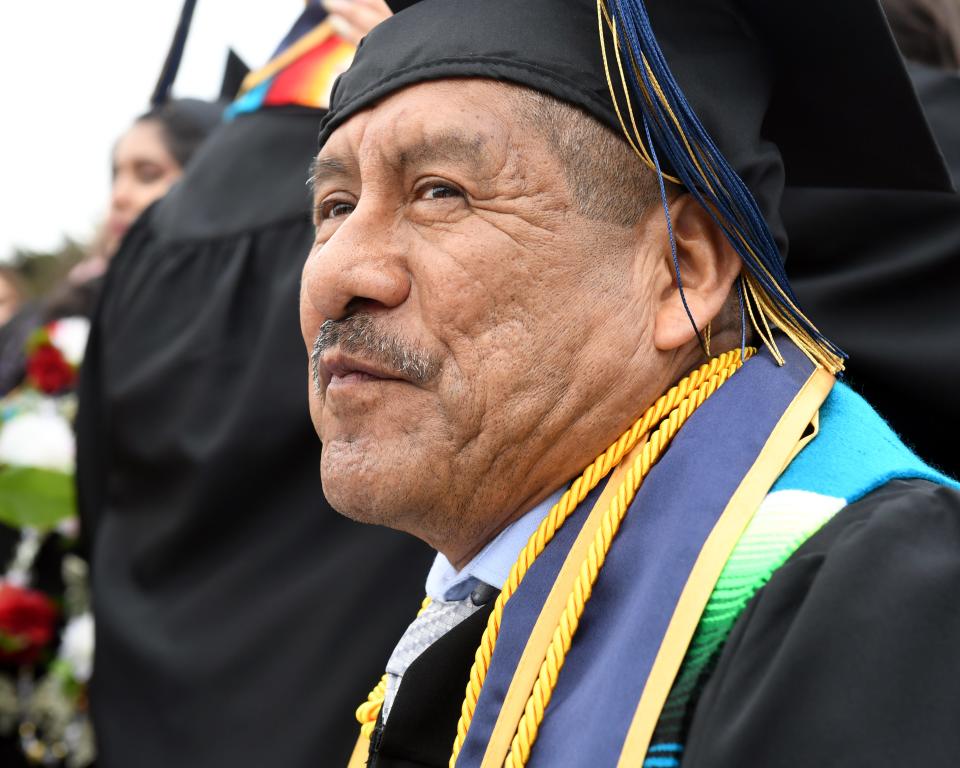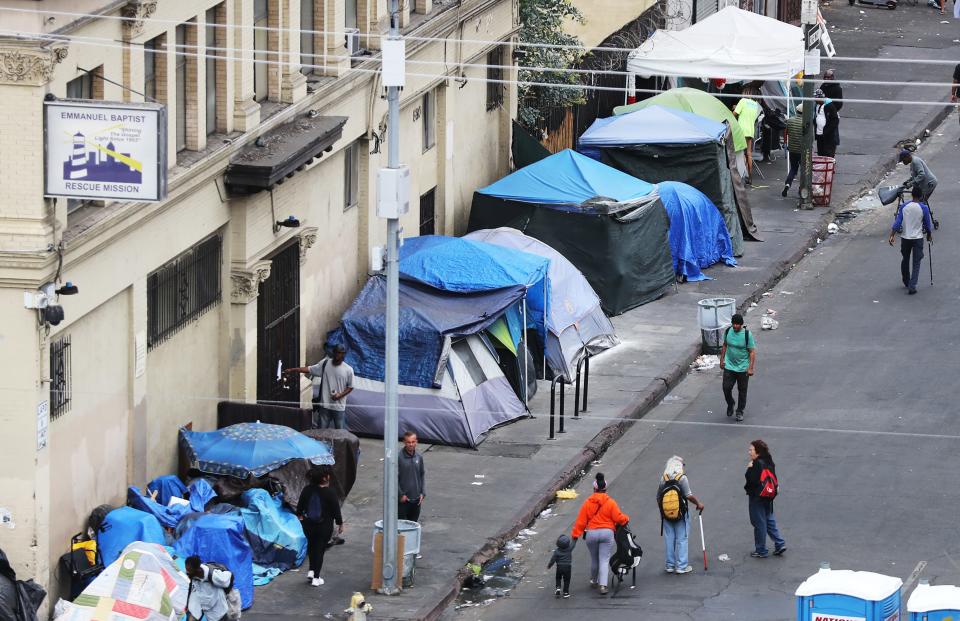In California: Blackouts, celeb scandals, crooked cops and wildfires

In California, 2019 was quite a year.
Celebrities were caught in a college admissions scandal, planned power outages thrust hundreds of thousands into darkness during wildfires and two big earthquakes rocked cities in the southern parts of the state. New Gov. Gavin Newsom took action on more than 1,000 bills, pressed pause on executions and halted new fracking permits (after they surged on his watch). And that hardly scratches the surface.
So, for today's newsletter, we are diving into some of the biggest stories that we published last year and the important collaborations that helped us tell the California story and hold its leaders accountable.
But before we celebrate the year that brought us baby Yoda, let's revisit the decade we just closed out. The 2010s brought us planking and Tinder. We Gangnam Styled and Harlem Shook. There were times of unity, when millions took to streets to march for women’s rights (or to play Pokémon Go), and times of division — we all still remember whether we saw that dress as blue and black or gold and white (obviously #blackandblue btw). And, we carried on through it all.
In the past 10 years, there has been bad news and good, triumph and tragedy, and a whole lot of change. We even survived the end of the Mayan Calendar. What a decade. What a year.
I'm California Reporter Gabrielle Canon, filling in for Arlene Martínez. Get the latest headlines from across the state delivered straight to your inbox by signing up here (it's free!).
Gavin Newsom's first year as governor
It's hard to believe it's only been a year since Newsom took the helm as governor of the Golden State. In an exclusive year-end sit down with USA Today, he shared his hopes for the future, defended his dedication to taking on the Trump Administration, and championed a continued pursuit of the California dream — even as residents in the state face a myriad of new challenges to achieve it.
Newspapers collaborate to expose criminal cops
At the beginning of 2019, investigative reporters at UC Berkeley's Graduate School of Journalism got their hands on a list that showed an eye-popping number of current or former law enforcement officers, and applicants, who had been convicted of a crime. The result of a Public Records Act Request, the records — including the list with 12,000 names — didn't specify who was on the job. State Attorney General Xavier Becerra's office refused to help reporters parse through the list and even threatened legal action if they published the document.
Thus began an unprecedented collaborative effort that brought together reporters from three dozen newsrooms across California, including USA Today Network publications The Desert Sun, Ventura County Star, Redding Record Searchlight, Salinas Californian and Visalia Times Delta. The investigation exposed how more than 80 law enforcement officers currently working in the state broke the laws they are charged to enforce.
The review also found that one of every five officers kept their jobs or are still working more than a year after they were sentenced, and 630 cops were convicted during the last decade. Domestic violence was one of the most common charges, after DUI and serious driving offenses. The series was revelatory and showed just how much more there is to uncover. California has among the strictest secrecy laws on police records in the country.
You can search the database here, and find out more about how the project came together here.
Destined to burn

As the devastating Camp Fire ripped through the town of Paradise in 2018, escaping residents were caught in dangerous gridlock. The traffic jam in the town of 27,000 people contributed to the catastrophe — and it's one that is likely to be repeated in other high-risk California towns where the roads aren't equipped for a mass exodus when flames are moving fast.
This was just one of many stories produced as part of the Destined to Burn series, highlighting the lessons learned and risks remaining from California's worsening wildfires. The result of a collaboration between the USA Today Network, McClatchy, Media News, and the Associated Press, the series explored the urgent issues and California's unique wildfire risks.
From celery fields to college graduate at age 58

Adolfo González had spent years working the celery fields in Salinas. The 58-year-old came to California from a rural village in Mexico, speaking Zapoteco, his native language, and intended to support his mother and siblings. He never stopped learning. After long days working he went to school. He learned English, and it took him more than a decade, sporadically taking classes between harvesting seasons, but he earned a GED.
In 2019, González received his bachelor's degree in Spanish from California State University, Monterey Bay. He graduated with academic honors with plans to become a teacher and his hometown has rallied around him. Days before his credential test, Monterey County proclaimed June 11 "Adolfo González Day."
"As I have said, I have done this for my family and my community, and myself, too," he said. "But I never imagined I can inspire this many people." Read his inspiring backstory and how his hometown celebrated.
An ever-widening rich-poor gap
The California story is increasingly one of income inequality. Communities across the state have witnessed surges in street encampments, faced rising rents and experienced stark gaps between the rich and the poor. Many residents are struggling to survive in the state they have always called home.

Housing costs are roughly 2.5 times the national average here, while more than a third of residents live in poverty. Roughly two-thirds of Californians said they'd tell young folks to lay down roots outside the state. The income gap in California is wide — and still growing.
In 2019, a statewide media collaboration assembled to tell the story of California's divide. Hosted by CalMatters, the series raises awareness about poverty, showcases local storytelling, and utilizes interactive tools and events to engage audiences.
You can learn more about the ongoing project and read the stories here.
A few other great reads
Time's list of the 100 most influential people of 2019, with small profiles of each written by other familiar names. (A write-up on Michelle Obama by Beyoncé? Yes please).
A look into the life of the wonderful Mr. Rogers told through a friendship with his widow.
The Bay Area's housing crisis experienced from a shack in the heart of Oakland.
This hundred-year throwback: a 1909 story from John Muir about one of his favorite adventure partners — a dog named Stickeen.
I'd like to end with a bit of gratitude. As we start a new year and a new decade, we at the USA Today Network would like to tip our hat to you, dear reader. Thank you for joining us on this journey. Stick with us as we continue to share important stories into the future — there's so much more to come!
In California is a roundup of news compiled from across USA TODAY Network newsrooms. Also contributing: Los Angeles Times, The Guardian, Time, Harpers, CalMatters, McClatchy, The New York Times.
This article originally appeared on USA TODAY: 2019 in California: Earthquakes, blackouts, celeb scandals, housing crisis

